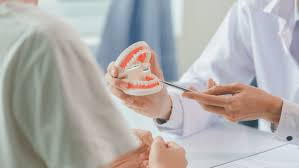A smile is an expression of happiness and a reflection of one’s overall health status. Good oral health is a critical component of well-being, influencing everything from self-confidence to the ability to consume a balanced diet. Maintaining robust health routines may present unique challenges for veterans shifting into civilian life. Reliable resources are instrumental in easing this transition by facilitating access to essential dental care.
Substantial scientific evidence supports the interrelation between oral health and general health. Cardiovascular and diabetes-related complications, for example, are significantly linked to oral health conditions, which are particularly pertinent for veterans due to their often high-stress careers. Insights from Harvard Health further emphasize that maintaining excellent oral hygiene can mitigate the risks associated with these systemic diseases, underscoring the importance of comprehensive dental care for those who have served.
An unwavering dental care routine is pivotal in maintaining oral health. Veterans who may have previously led unpredictable lives can benefit greatly from establishing a structured, consistent oral hygiene routine as part of civilian life. Adequate dental care involves brushing teeth at least twice daily using fluoride toothpaste, which is crucial in combating daily plaque accumulation and preventing cavities.
Flossing is a critical adjunct to brushing, serving as a potent measure against gum disease by removing plaque and debris from areas a toothbrush misses. Many veterans might not realize the importance of flossing, but it is essential for maintaining healthy gums and preventing periodontitis, which can have far-reaching health consequences. Access to the best dental insurance for veterans can help ensure they receive regular cleanings and checkups, making it easier to stay on top of their oral hygiene routine and prevent serious dental issues. Routine dental visits for professional cleaning and examinations further complement home care practices, ensuring early detection and management of potential dental problems.
Adopting a nutritious diet contributes profoundly to the strength and health of one’s teeth and gums. Veterans should prioritize consuming foods high in essential nutrients that bolster dental health, such as calcium and vitamin D in dairy products and leafy greens. These nutrients are pivotal in supporting the maintenance and development of strong teeth and bones.
The role of diet in oral health cannot be understated. It is important to opt for foods that enhance dental health while avoiding those that could be detrimental. Limiting sugary snacks and acidic beverages is vital, as these can lead to enamel erosion and cavities. As the American Dental Association (ADA) suggests, a conscious approach to meal planning can help integrate tooth-friendly choices that promote oral health.
The connection between mental and oral health is profound, often overlooked, but critically important. Stressful experiences can manifest physically, contributing to dental issues like bruxism, where individuals grind their teeth, leading to wear and tear on enamel, jaw pain, and even tooth fractures.
Incorporating mindfulness and relaxation techniques into daily routines can benefit oral health by reducing stress levels and minimizing stress-related dental issues. Meditation, yoga, and regular physical activity promote mental tranquility, enhancing overall well-being. By prioritizing mental health, veterans can foster a holistic approach to health that includes mental peace and oral health, supporting a more balanced and resilient lifestyle.
Recent technological advances have significantly expanded the tools and practices available to maintain and improve oral health. Electric toothbrushes, with features such as built-in timers and pressure sensors, offer a more efficient and thorough cleaning experience. Meanwhile, water flossers are an effective alternative to traditional floss, delivering a pulsating stream of water that cleanses between teeth and gums.
Digital technology also offers new ways to manage and enhance oral care routines. Dental health apps can remind veterans when it’s time to brush, floss, or visit the dentist and provide personalized oral hygiene tips. These innovative solutions make it easier for veterans to integrate effective dental care into their regular routines, ensuring that maintaining a bright, healthy smile is convenient and attainable.
Community and support systems are vital in encouraging positive health behaviors and sharing valuable resources. For veterans, participating in community-focused dental health initiatives or support groups can provide a wealth of information and foster a sense of camaraderie. Such engagements allow veterans to share experiences, gain insights, and encourage one another in maintaining diligent oral health practices.
Through these networks, veterans can not only access practical advice and support but also build alliances that contribute to enhancing overall well-being. Community resources and peer support are strong foundations for fostering resilience and commitment to personal health initiatives.
Veteran health resources offer indispensable support in managing oral health care effectively. Leveraging these resources can significantly ease the transition from active service to civilian life, providing necessary support in education, financial assistance, and access to comprehensive dental care options.
These resources ensure that dental health is neither neglected nor overlooked but rather is seen as an integral part of overall health. Veterans should actively pursue these opportunities to enhance their oral health, accessing programs that can offer tailored dental services and guidance. In doing so, they can secure a healthier, more confident smile integral to their identity and well-being as they navigate life after service.
Related Articles
20 Packing Hacks to Save Space and Time
Enter into the Realm of ESG Course
Pete Hegseth Net Worth – A Complete Overview!
